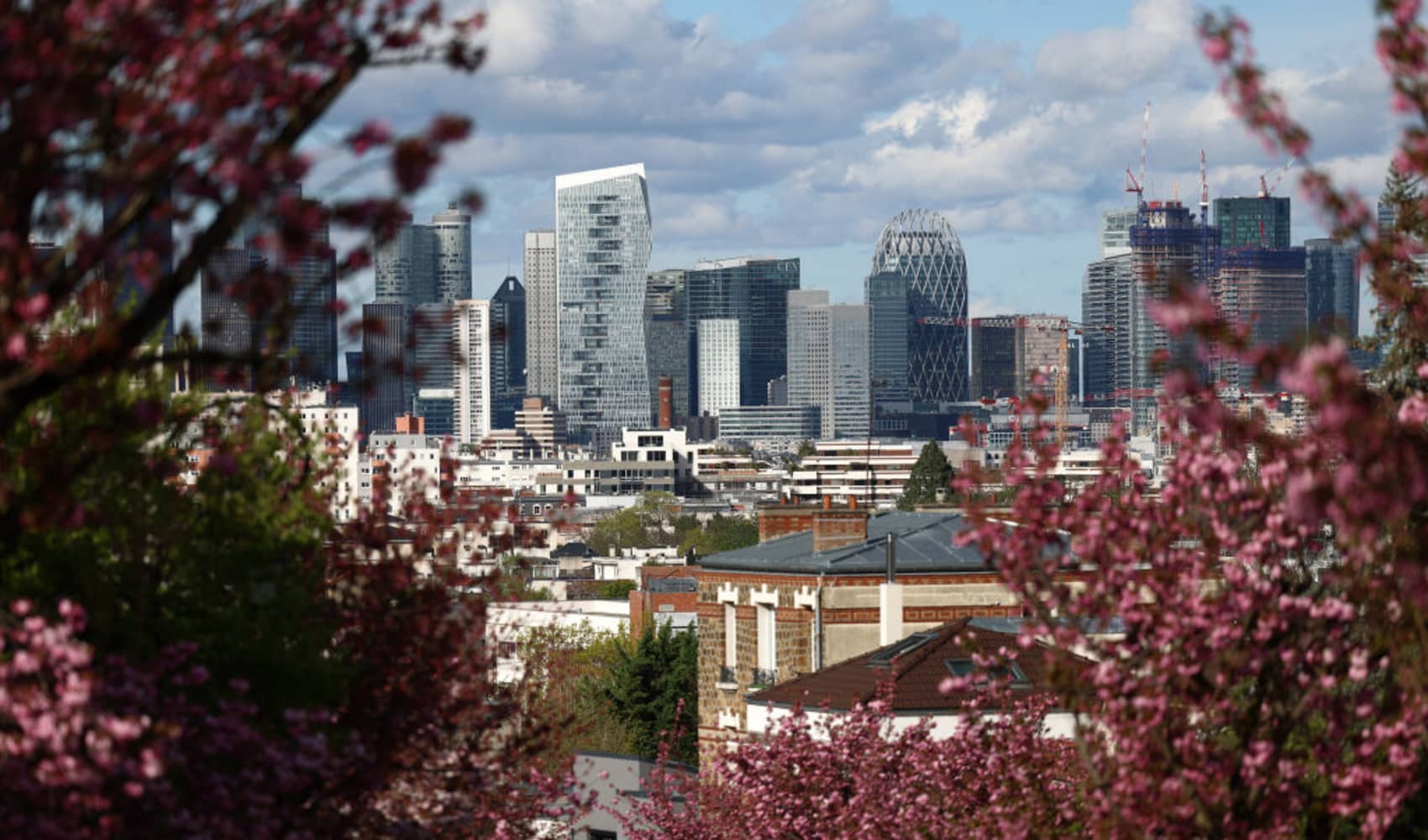
The Centers for Disease Control released updated guidance on Friday about how Covid spreads, emphasizing that the virus can be spread through the air via "very fine droplets and aerosolized particles" from an infected person who is more than six feet away.
Since October, the CDC has said that there is a risk of airborne transmission of Covid. But as people return to indoor establishments, like schools or offices, this guidance highlights the necessity of safety measures, Dr. Anthony Fauci told NBC's "Meet the Press" Sunday.
"When you have the ability of a particular virus to go further than just a few feet, clearly one of the most important things is proper ventilation," Fauci said. "No. 2: mask-wearing."
The CDC says that there have been instances when people were infected with Covid despite maintaining physical distance from others. For example, if people spend a prolonged period of time (from 15 minutes to hours) in a space, the virus can linger in the air and infect someone else who walks through. Or in situations where people are shouting, singing or breathing heavily, that can increase the risk of transmission.
Get Tri-state area news and weather forecasts to your inbox. Sign up for NBC New York newsletters.
So what does that mean for returning to the office?
In buildings, "you're going to want to have good ventilation," Fauci said. Adequate ventilation can reduce the concentration of virus in the air and reduce the risk of exposure. The CDC says that workplaces should have properly functioning heating, ventilation and air conditioning (HVAC) systems to ensure good airflow and ventilation.
There are steps that the CDC says can make HVAC systems more effective, such as running the HVAC system at max outside airflow for two hours before and after occupied times and boosting the percentage of outdoor air that the system uses. (If you're not sure what your workplace is doing to improve indoor air quality, ask your employer about HVAC or other technologies that might be in use.)
Money Report
The agency also recommends solutions like introducing staggered shifts and having outdoor meeting areas.
While those things are in the hands of your employer, there are things you may be able to do, too.
Opening windows and doors to let outside air in is recommended in workplaces. And the use of portable high-efficiency particulate air (aka "HEPA") fans and air purifiers can help clean the air in areas where lots of people tend to congregate, according to the CDC.
And if possible, take the stairs instead of elevators, which can get crowded.
As for masks, given what we know about airborne transmission, there's a possibility that "you're going to have to make sure that indoors, when you have unvaccinated people, that people wear a mask," Fauci told "Meet the Press."
In situations where you're around people whose vaccination status or risk of severe Covid is unclear, the CDC still recommends that people wear well-fitting masks.
In late April, the CDC revised its guidance on wearing masks, adding that people who are fully vaccinated can exercise and attend small gatherings outdoors without wearing a face mask.
To date, 34% of the total U.S. population is fully vaccinated against Covid, according to the CDC.
Sign up now: Get smarter about your money and career with our weekly newsletter
Don't miss: Dr. Fauci on Joe Rogan’s ‘incorrect’ vaccine comments: Why young people should ‘absolutely’ get vaccinated






